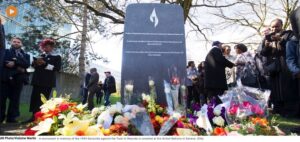By Lisa Vives, Global Information Network
NEW YORK (IDN) — In a message marking the grim anniversary of the 1994 genocide of Tutsi in Rwanda, UN Secretary-General António Guterres warned of the rise of extremist groups and the inflammatory rhetoric that produced horrific consequences.
“Everyone must take a hard look at today’s world and ensure that we heed the lessons of 27 years ago,” the UN chief declared. “While the technology used by extremists is evolving, their vile messages and rhetoric remain the same.”
More than one million were systematically killed in Rwanda over the course of just 100 days including Hutu and others who opposed the massacre. This year, the “Day of Reflection” took place in the shadow of disturbing revelations uncovered by French historians that tied France—blinded by their fears of losing influence in Africa and by a colonial view of the continent’s people—to the massive slaughter.
The report was intended to answer charges that France did not do enough to halt the massacres orchestrated by Rwanda’s Hutu president Juvenal Habyarimana, with whom Paris had cultivated close ties. The document was commissioned in 2019 by President Emmanuel Macron.
Fifteen historians with unprecedented access to French government archives produced the 992-page report. While the authors cleared France of complicity in the deaths of the ethnic Tutsis, they faulted former President François Mitterand under whose regime the “murderers but also the masterminds of the genocide” were protected in a safe zone established by French forces and who the French authorities refused to arrest.
Mitterrand and his inner circle were also fearful of the encroachment of English-speaking influence into francophone Africa by Uganda and the Rwandan Patriotic Front (RPF) of Kagame.
Meanwhile, UN chief Guterres stressed the urgency of addressing deepening social and cultural divides, especially given the COVID-19 crisis, which have profoundly affected the entire spectrum of human rights everywhere, fueling discrimination, social polarization and inequalities “all of which can lead to violence and conflict”.
“We saw what happened in Rwanda in 1994, and we know the horrific consequences when hate is allowed to prevail”, he said, calling on everyone to defend human rights and ensure full respect all members of the society.
“On this solemn day, let us all commit to building a world guided by human rights and dignity for all”, Mr. Guterres added. [IDN-InDepthNews – 12 April 2021]
Photo: A monument in memory of the 1994 Genocide against the Tutsi in Rwanda is unveiled at the United Nations in Geneva (file). UN Photo / Violaine Martin.


